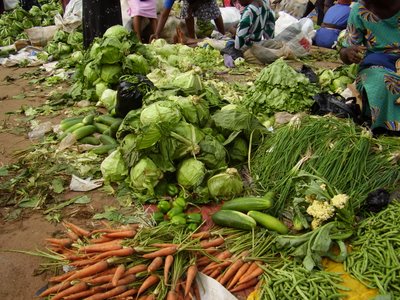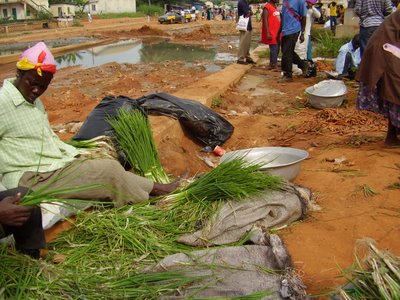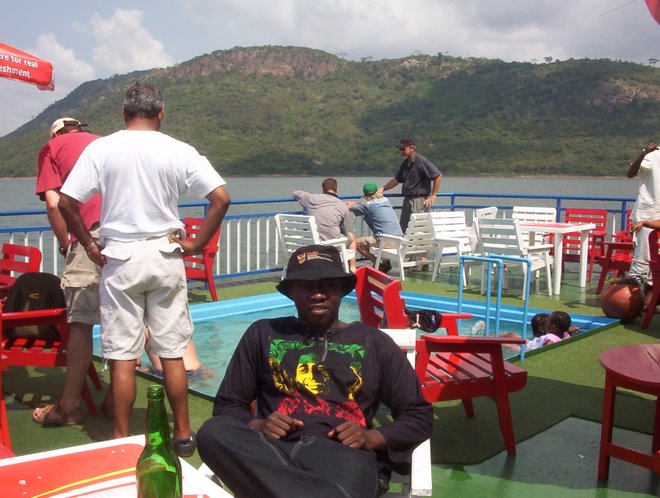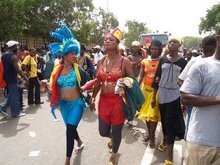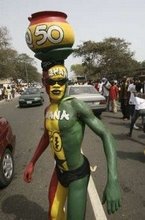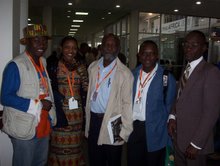MESSING UP WATER BODIES BIG TIME IN KUMASI
Picture shows polythene and other waste materials choking up some water bodies at Suame.
The continued pollution of water bodies in the Kumasi metropolis has been a major problem environmentalists have been trying to uproot.
There has been a massive pollution of water bodies in the Kumasi metropolis in the last few years as people dump filth and human excreta into rivers haphazardly at all areas in the metropolis.
Some have even connected their sewerage pipes directly into rivers where excreta from their homes are directly deposited into the rivers which drain into the Owabi and Barekese dams, which provides water supply for Kumasi and other surrounding areas.
Although the Ghana Water Company Limited (GWCL) and the Environmental Health Department of the Kumasi Metropolitan Assembly (KMA) have on numerous occasions embarked on campaigns to call on people to desist from such activities, the practice seems to be on the increase.
Save Our Waters Ghana (SOWG), a non governmental organisation in Kumasi has taken a giant step in fighting the canker but its efforts would come to nothing if residents don’t change their attitude towards pollution.
Ghana has been highlighted to become one of the water stress countries in Africa in a few years to come. The recent rationing of pipe borne water by the Ghana Water Company Limited (GWCL), felling of trees along river banks and destruction of forest reserves at dam catchments, developing water bodies for settlements, dumping of refuse at the catchments of water supply and outbreak of water related diseases are all issues which point to a near future water stress in Ghana.
Water shortage causes a lot of problems ranging from domestic, industrial and in government circles as well.
In view of this, it is about time that people became conscious about saving water bodies in order to help avert any water crisis in future.
The continued pollution of water bodies in the Kumasi metropolis has been a major problem environmentalists have been trying to uproot.
There has been a massive pollution of water bodies in the Kumasi metropolis in the last few years as people dump filth and human excreta into rivers haphazardly at all areas in the metropolis.
Some have even connected their sewerage pipes directly into rivers where excreta from their homes are directly deposited into the rivers which drain into the Owabi and Barekese dams, which provides water supply for Kumasi and other surrounding areas.
Although the Ghana Water Company Limited (GWCL) and the Environmental Health Department of the Kumasi Metropolitan Assembly (KMA) have on numerous occasions embarked on campaigns to call on people to desist from such activities, the practice seems to be on the increase.
Save Our Waters Ghana (SOWG), a non governmental organisation in Kumasi has taken a giant step in fighting the canker but its efforts would come to nothing if residents don’t change their attitude towards pollution.
Ghana has been highlighted to become one of the water stress countries in Africa in a few years to come. The recent rationing of pipe borne water by the Ghana Water Company Limited (GWCL), felling of trees along river banks and destruction of forest reserves at dam catchments, developing water bodies for settlements, dumping of refuse at the catchments of water supply and outbreak of water related diseases are all issues which point to a near future water stress in Ghana.
Water shortage causes a lot of problems ranging from domestic, industrial and in government circles as well.
In view of this, it is about time that people became conscious about saving water bodies in order to help avert any water crisis in future.




